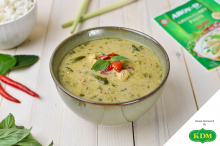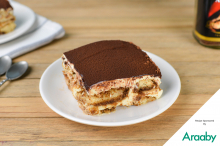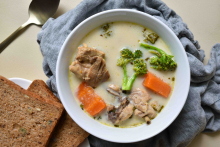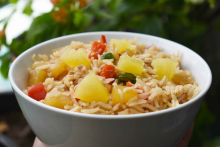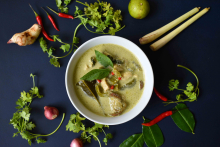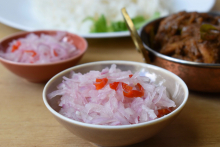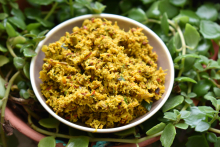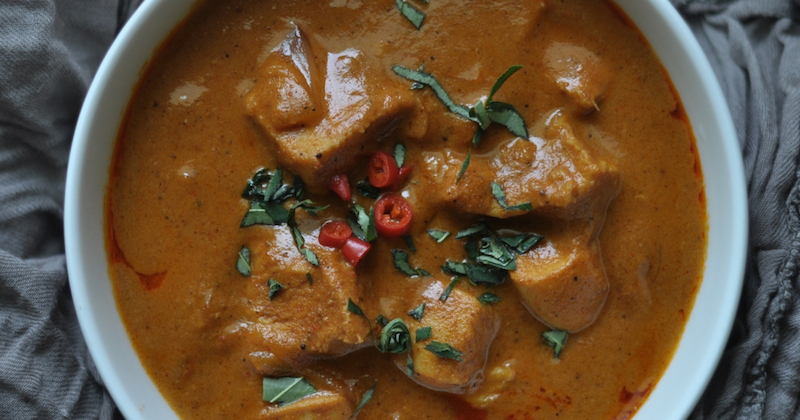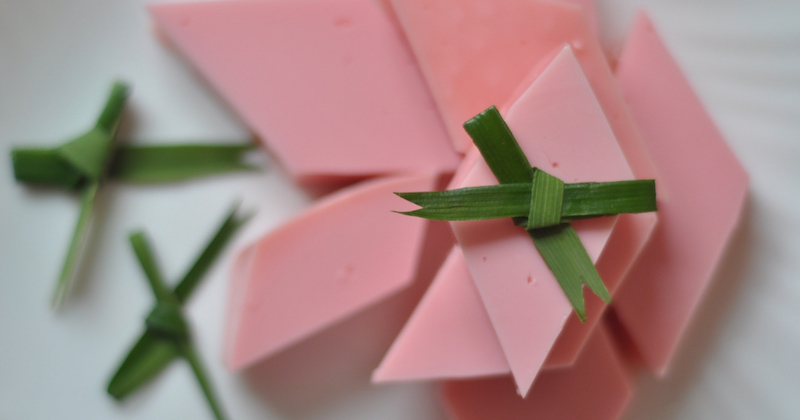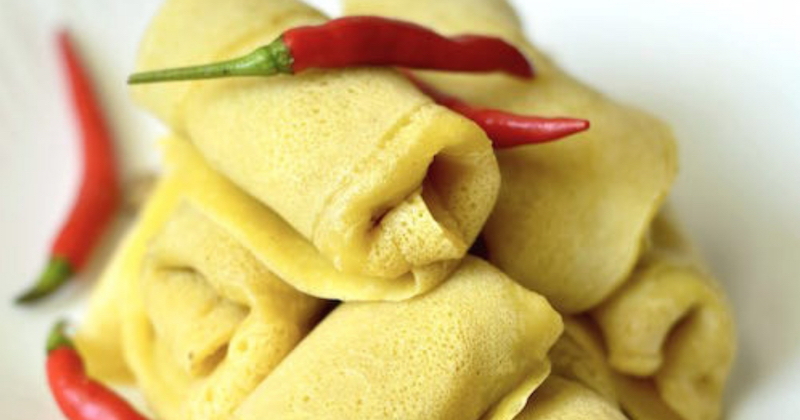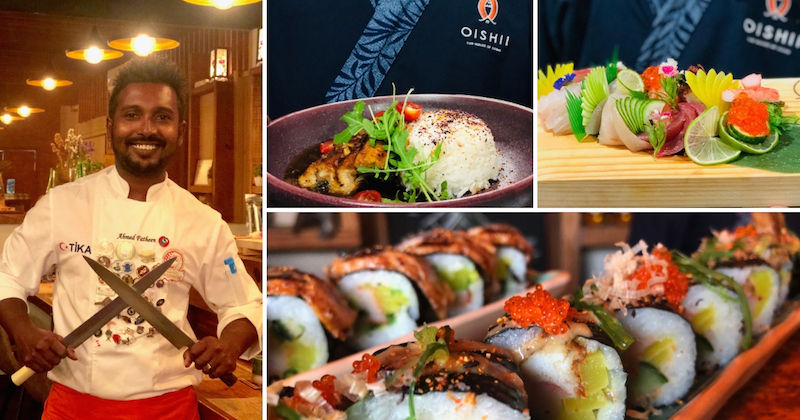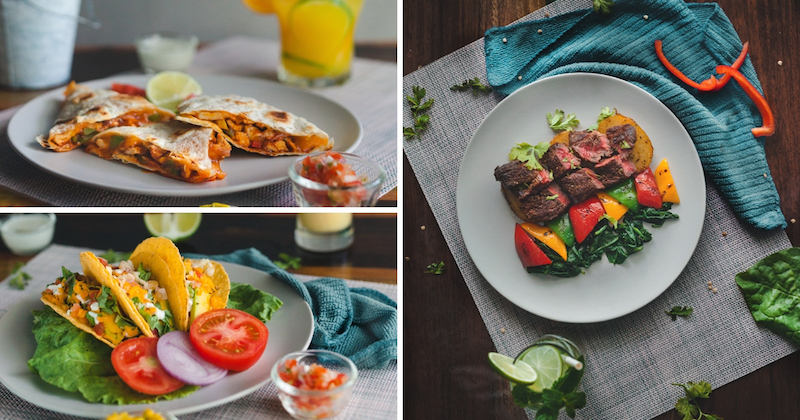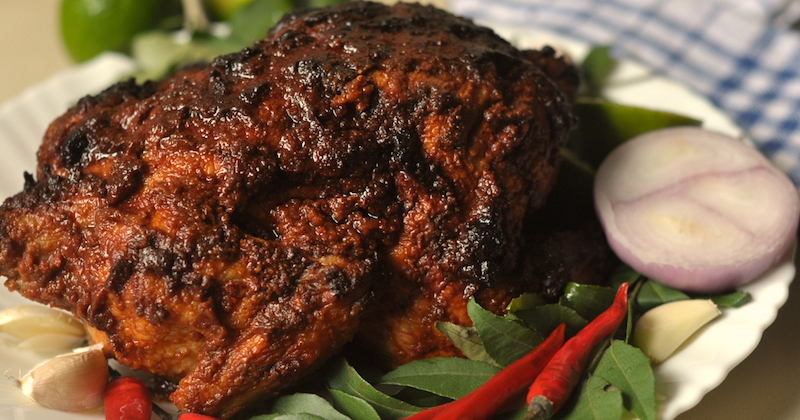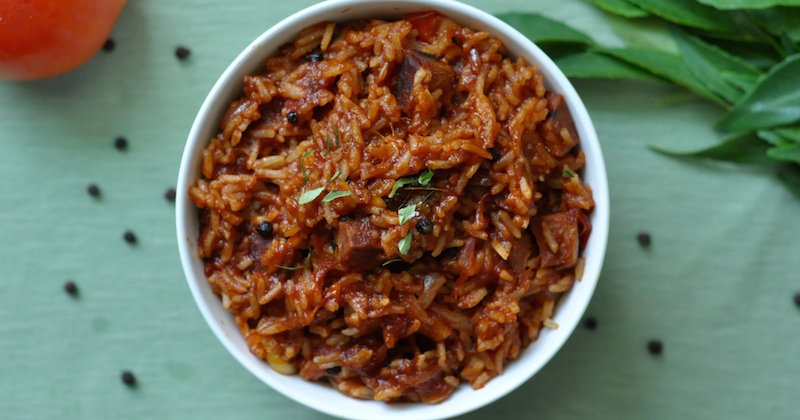Zareena Ibrahim Didi's Dhivehi Kaanaa
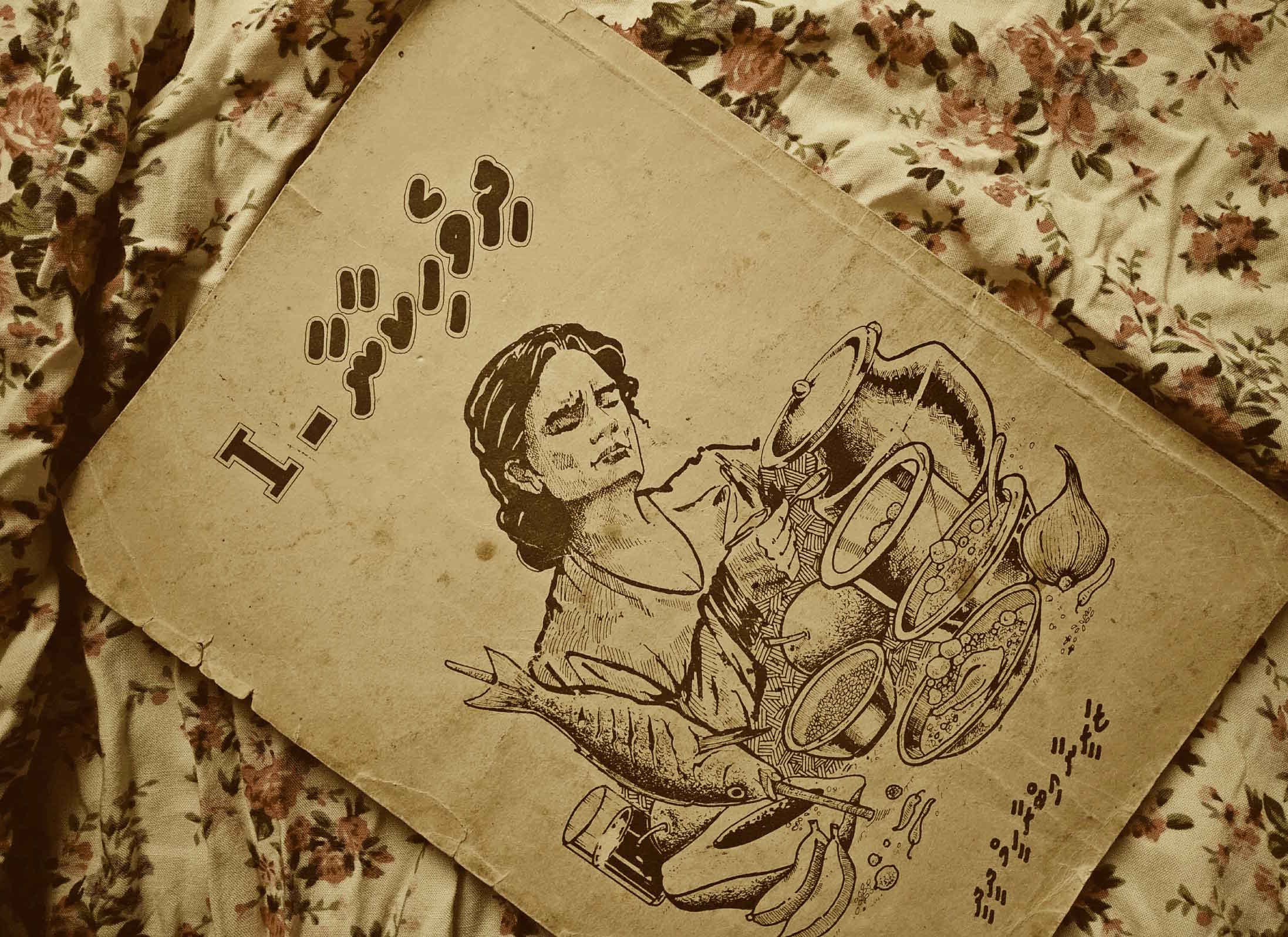
Zareena Ibrahim Didi describes the recipe instructions on her cookbook Dhivehi Kaana 1 quite succinctly. Following the title of every recipe, she lists the needed ingredients; following that are the quantities for every ingredient and finally the cooking instructions.
We couldn’t find a publishing date on our copy of Dhivehi Kaanaa 1, which by now through repeated usage and the passing of time has taken on a pleasantly vintage aesthetic.
In the foreword, Zareena talks about her cooking class for which the first phase had recently concluded. And she goes on to indicate that the recipes included in the book are a collection of what she had taught in her class. Her recipes are based on the general Maldivian cooking practices from seventy to eighty years prior to the time she wrote the book, and according to her, the ingredient quantities are indicated in spoons and cups so that the book could be easier to use for the then modern home cooks.
She is graceful when thanking everyone who had helped her in both compiling and publishing the book and conducting her cooking classes, and is rather sweet when thanking her mother for being the force behind everything she has accomplished.
Her love for Maldivian food is evident when she describes Maldivian traditional cooking practices as a precious gift passed down from the Dhivehi ancestors, and stresses on the importance of preserving its unique characteristics and flavours.
The book is divided into chapters that are based on the usual categories of the Maldivian cuisine. The first chapter ‘Bondibathaai Kandhi’ is on sweet and porridge like items, and includes recipes for Haluvidhaa, Pirini, Kirukeyo that is made from the plantain Maalhoskeyo, and Kashikeylu Foa made from the fruit of the screw pine, in addition to the various Kandhi and Bondibaiy recipes.
The second chapter is on short-eats and includes recipes for the usual assortment of Dhivehi teatime treats along with recipes for items that can be considered unusual these days such as the Zeenar that’s made from rice, coconut and eggs.
Interesting and unfamiliar entrees we found on the chapter on rice includes Roosihaabaiy, Gashaabaiy, Mugubaiy, Folaa and Kaaliyaa Birinjee while Zareena includes detailed instructions for making the still popular Masbaiy and Chicken Biriyani.
We think the chapter on curries would be of interest to anyone who wants to make curries such as Hanaakurimas, Kulhi Riha, and Bakari Riha without using packaged curry powders. Zareena also includes recipes for breadfruit curries, Banbukeylu Hithi and Banbukeylu Bogaru, which most of us rarely hear about or get to eat these days.
The chapter on Satani, the Maldivian version of salads, covers items such as the Bodufiyaa Satani made from onions, Anbu Satani made from young mangoes, Falholu Satani made from young papayas and our favourite Satani from the book Fundi Satani made from mint leaves.
Next is a short chapter on Asaara, the Maldivian version of chutney. Zareena includes two recipes; Anbu Asaara made from mangoes and Kadhuru Asaara made from dates. Following that is also an equally short chapter on Baiypen, Maldivian savoury porridges, which includes recipes for Kulhibaiypen and Lonu Kandhi. Recipes for Kashikeylu Fani and Hiththalafushuge Fani are found in the brief chapter on juices.
The last chapter is on miscellaneous items from the Maldivian cuisine such as Fihunumas, Lonumirus, Rihaakurudhiya and Mas Kurolhi.
Dhivehi Kaanaa 1 is really a treasure trove for anyone who wants to learn about traditional Maldivian cooking. And after going through the book numerous times, we must say her enthusiasm for preserving the unique traditional flavours of the Maldivian food is quite contagious.
More Recipes
About Lonumedhu
Lonumedhu is about eating great food right here in the Maldives.
Our easy to follow recipes use locally available ingredients.
In our blog you will find food news, interviews with chefs and cooks, useful information about eating out and other foodie reads.
Contacts
© Lonumedhu.com 2017-2021. All rights reserved. No part of this website may be reproduced without the written permission of the publisher.
Advertisers
Lonumedhu.com has partnered with Qualia Pvt Ltd, a publishing & marketing agency, for its desktop and mobile advertising.
Advertising enquiries should be directed to (960) 987 4396 or marketing.sales@lonumedhu.com.

